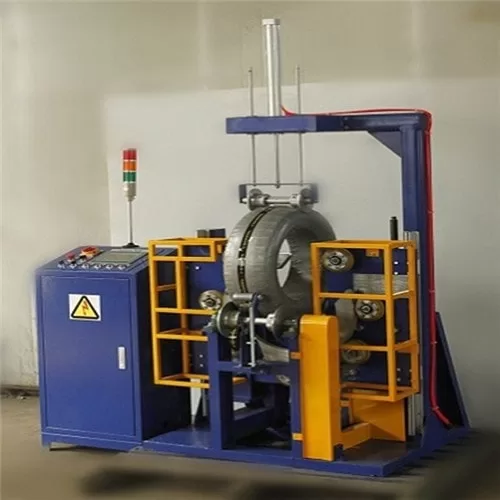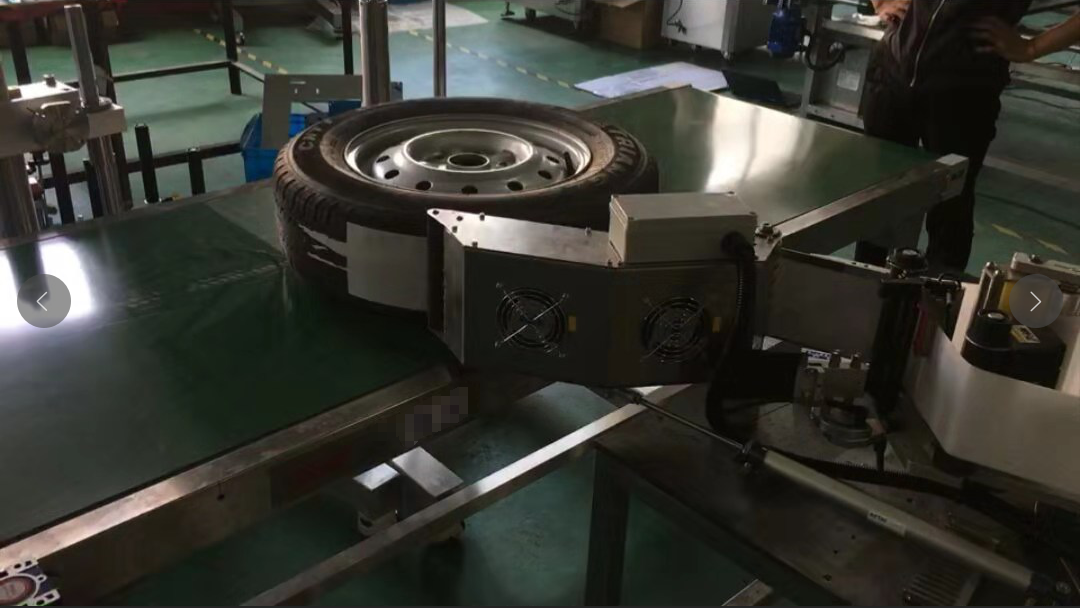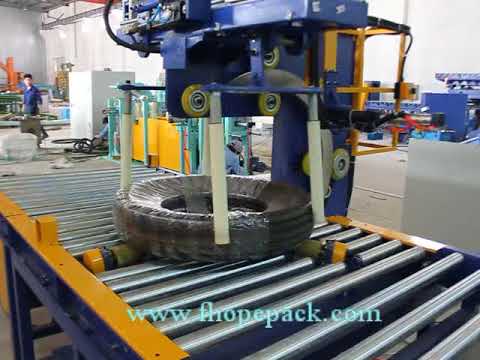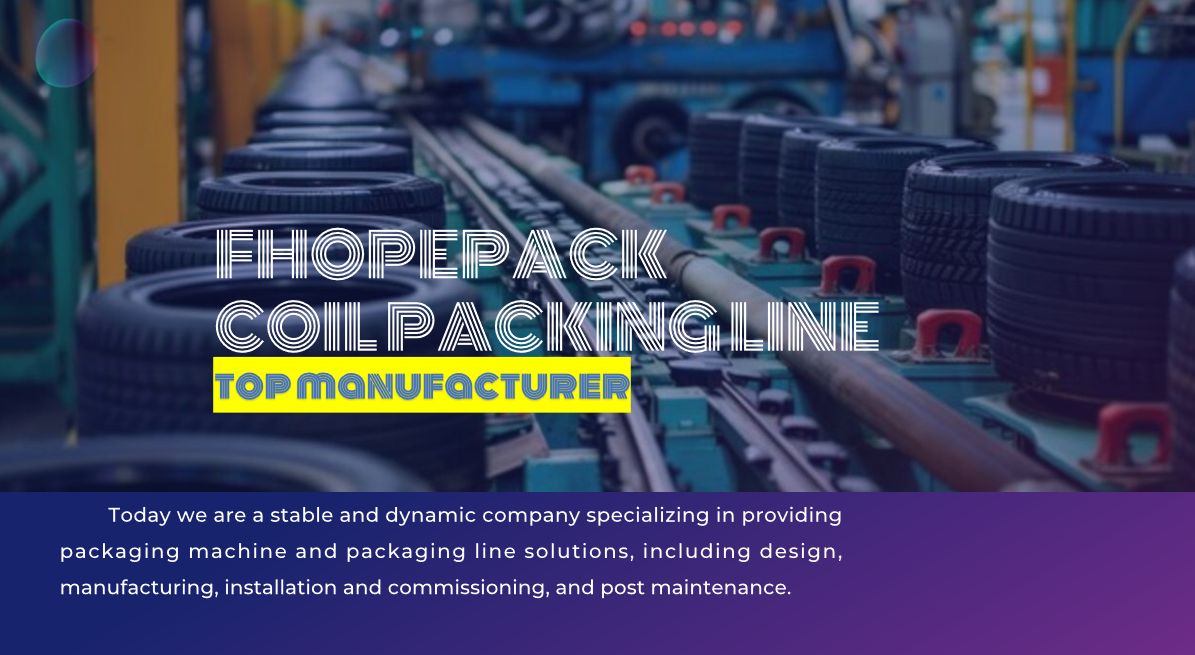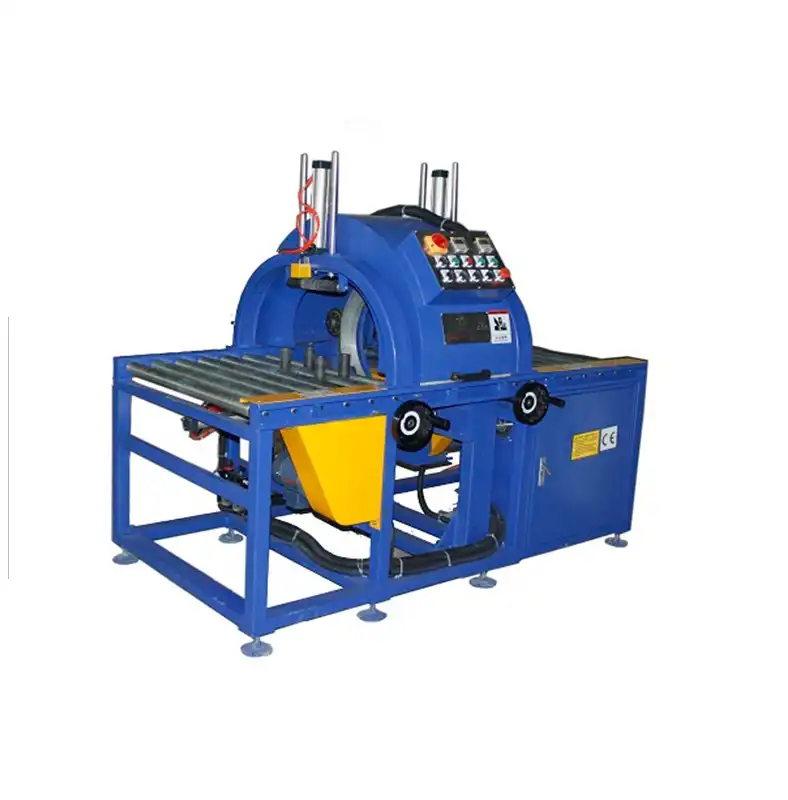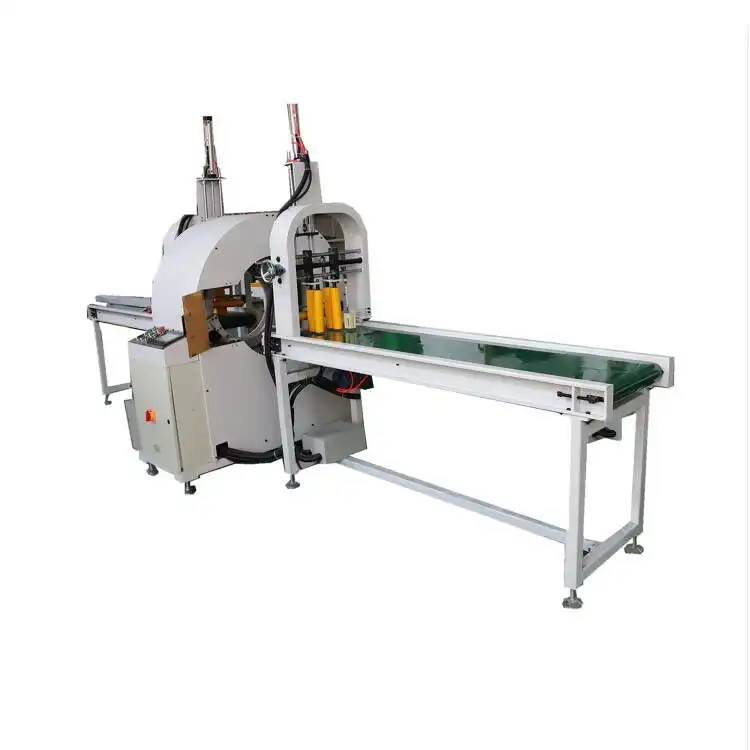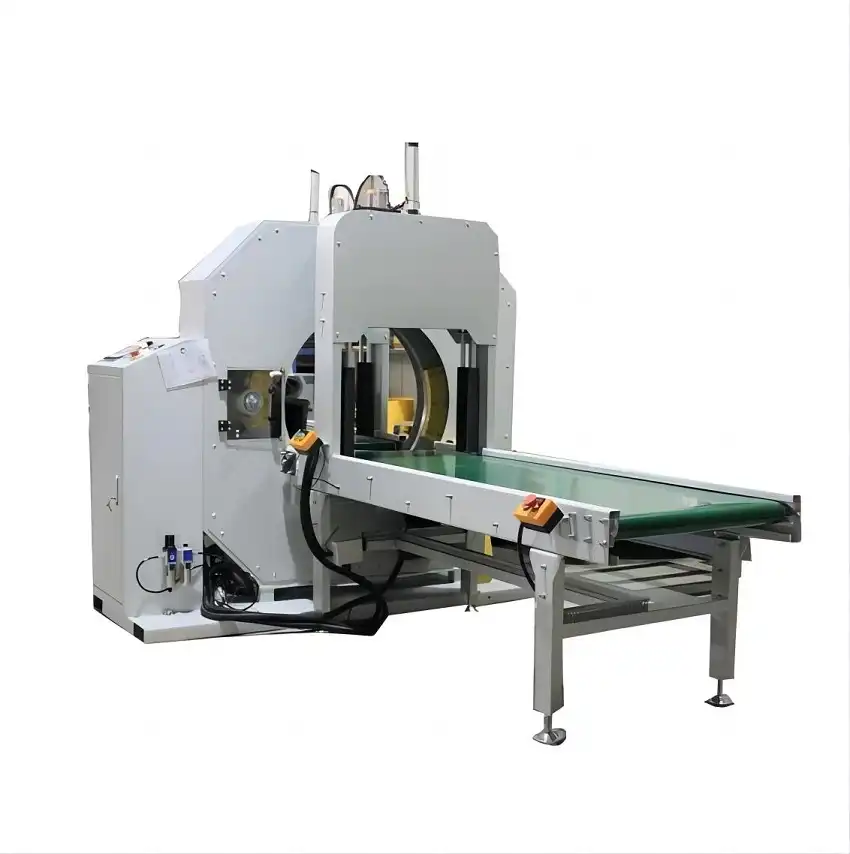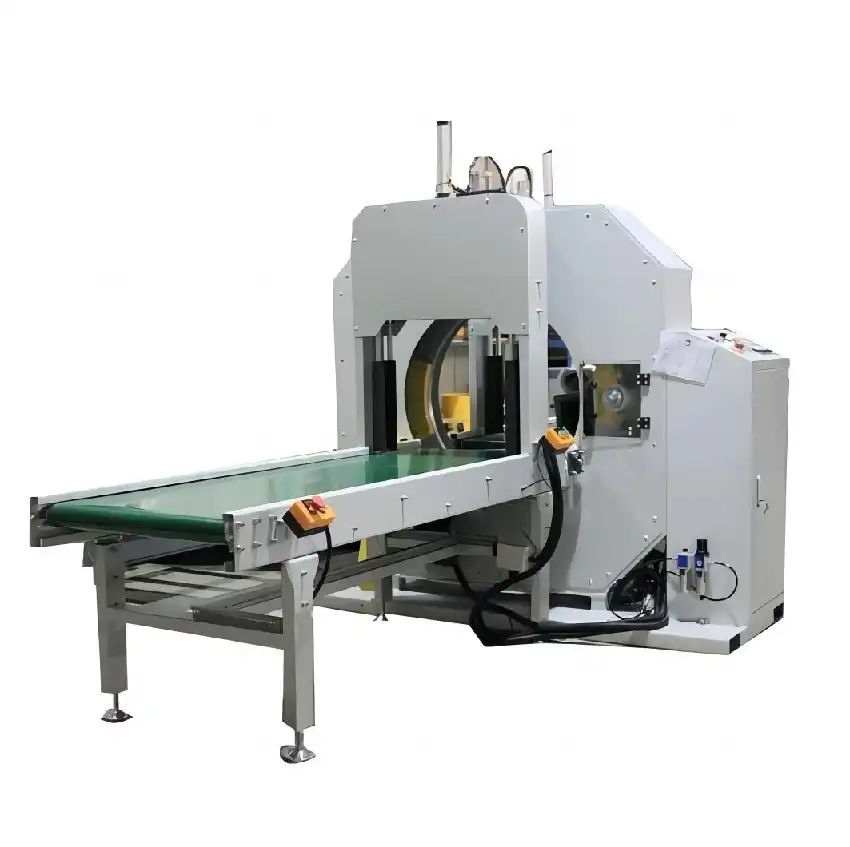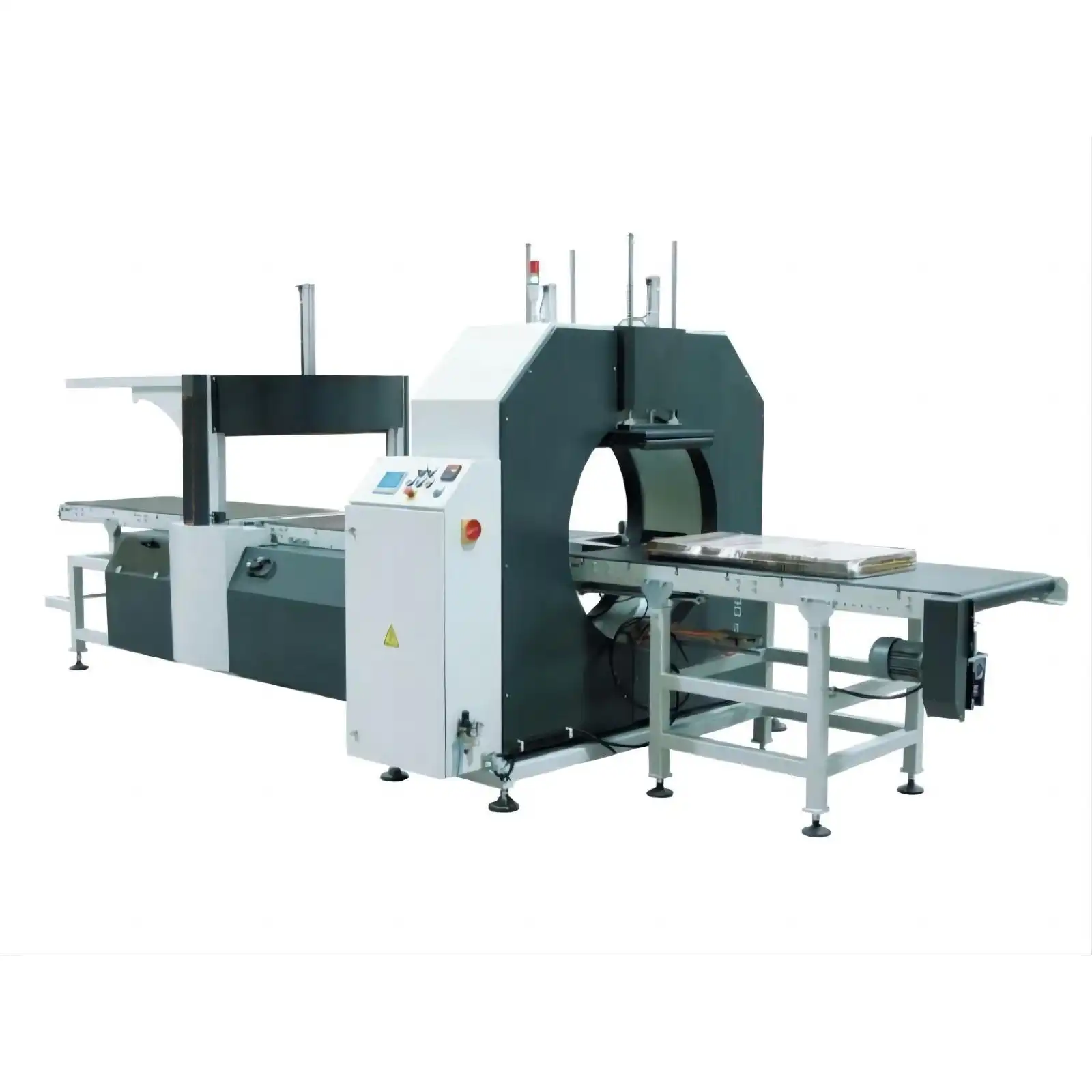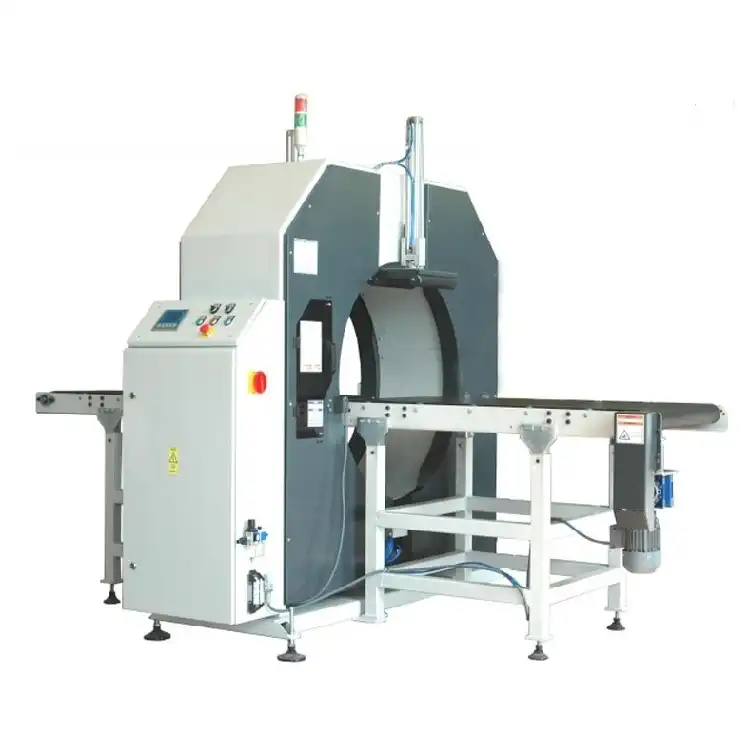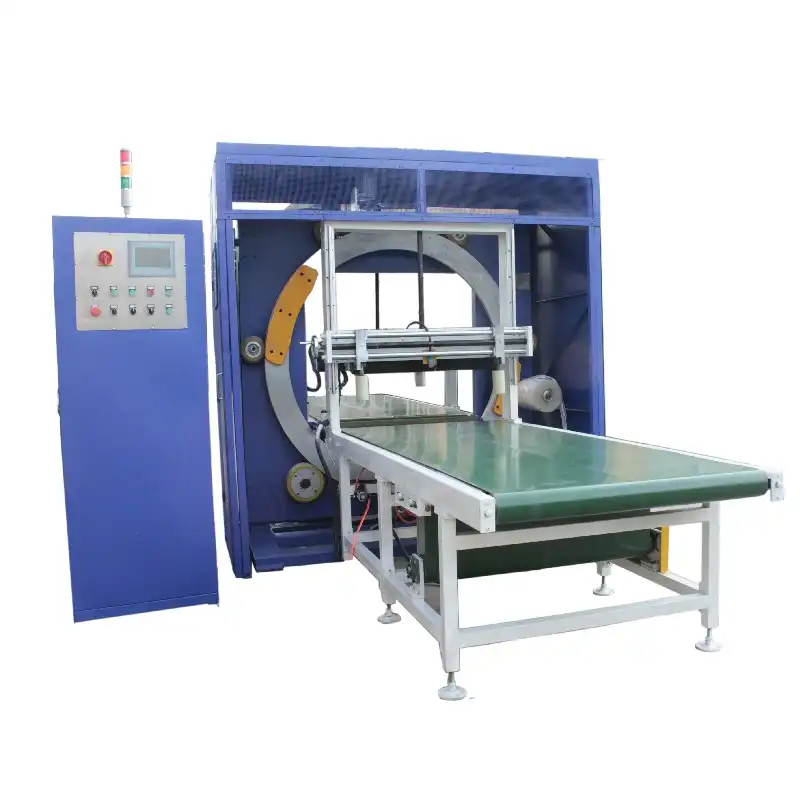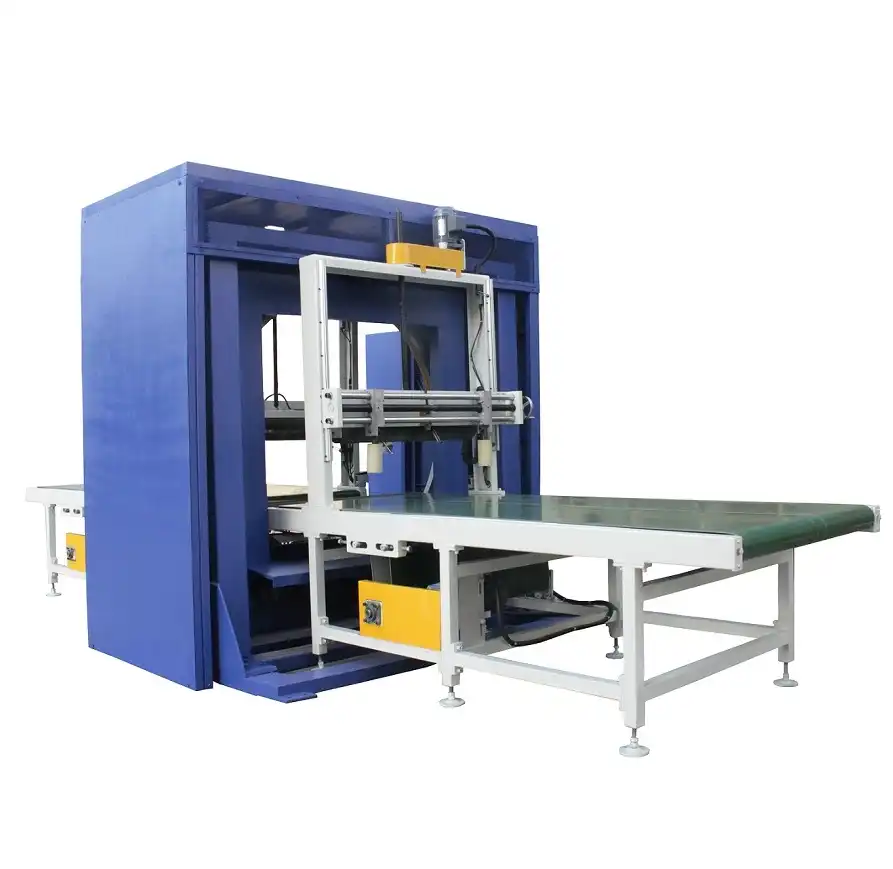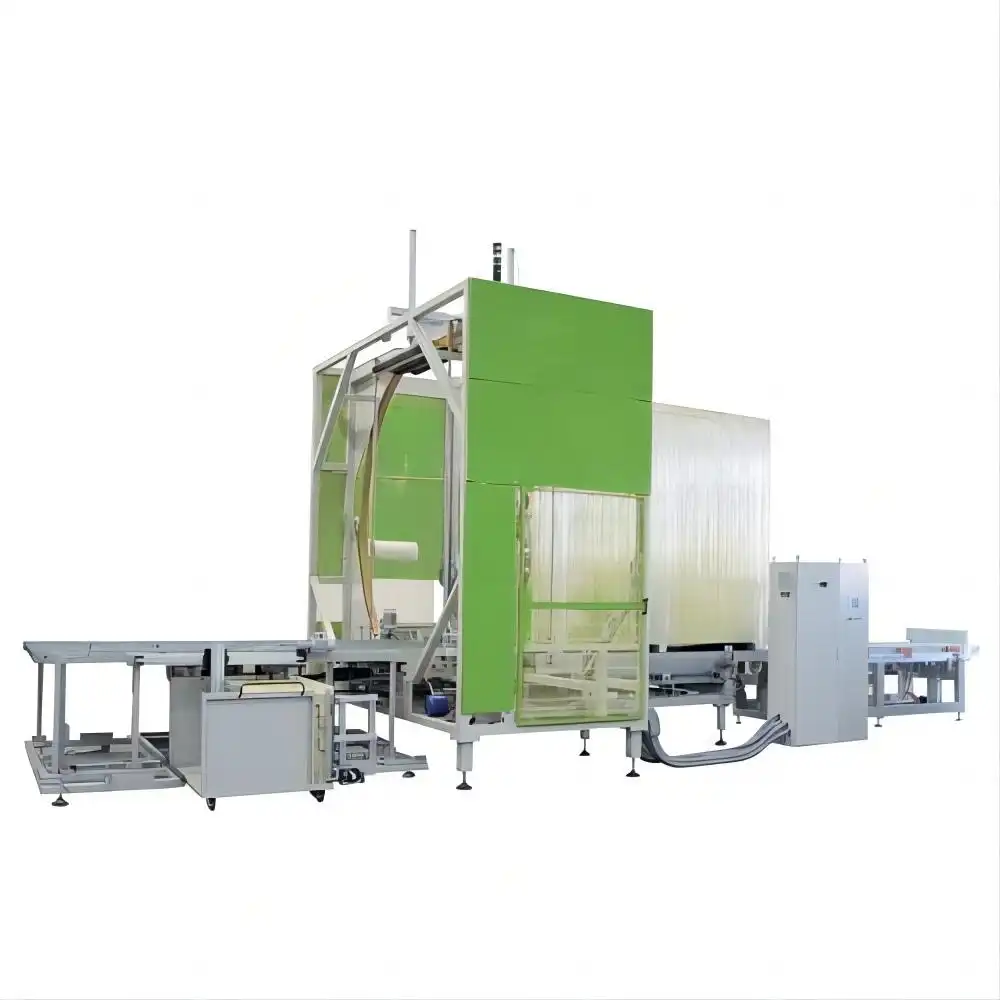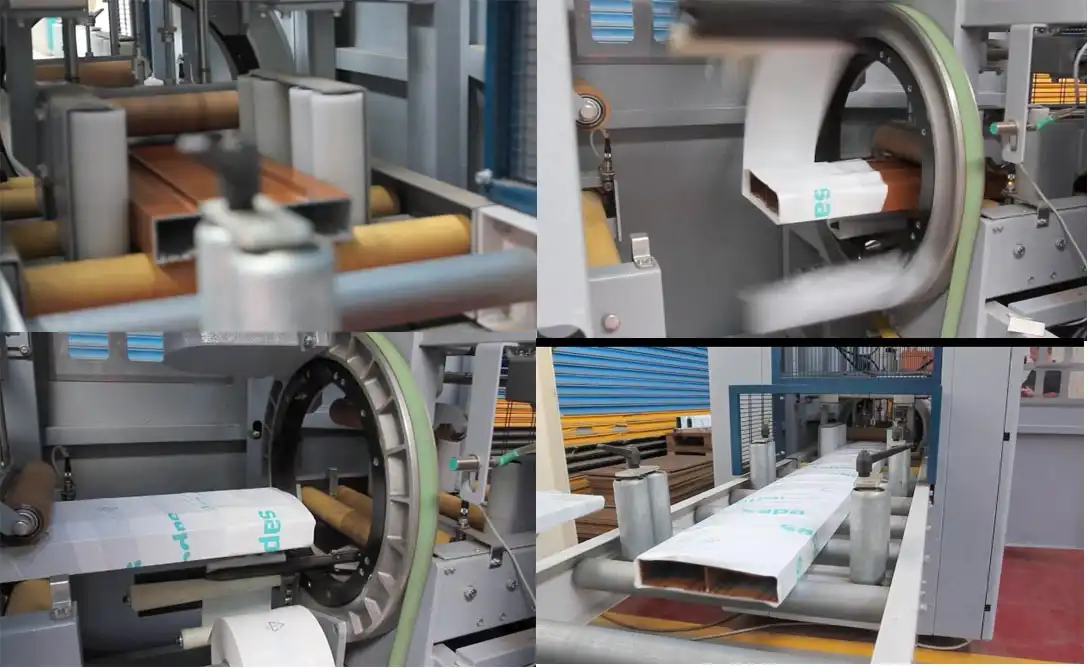Guide to Coil Wrapping Machines for Tyres: Benefits, Types, and Key Considerations
Introduction to Coil Wrapping Machines for Tyres
The automotive, aviation, and industrial equipment industries all rely on high-quality tyres for their equipment, which requires careful handling and storage. Coil wrapping machines designed for tyres have revolutionized the packaging process, offering secure wrapping that prevents damage, improves presentation, and streamlines transportation. This guide explores the functions, benefits, and best practices associated with coil wrapping machines for tyres, ensuring that companies maintain product integrity and operational efficiency.
Why Tyres Require Specialized Wrapping Solutions
Tyres, though inherently durable, are vulnerable to environmental and physical damage, making specialized wrapping essential for optimal protection, handling, and presentation. During transport and storage, tyres are exposed to dust, moisture, UV light, and physical impacts, all of which can lead to degradation. Dust and dirt not only affect the appearance of tyres but can also penetrate the rubber, potentially causing long-term material damage. Moisture exposure, particularly during prolonged storage, can lead to mold or compromise the rubber's structural integrity. Without a protective wrap, tyres may accumulate grime and dirt, affecting their aesthetics and requiring cleaning before they can be sold or installed.
Additionally, tyres can become deformed if improperly handled or stacked, especially over extended storage periods. Wrapping provides structure and stability, reducing the risk of deformation by holding each tyre in its ideal shape. This is especially valuable for larger tyres, which are harder to handle and prone to damage when moved or stored without adequate support.
Coil wrapping machines, specifically designed for tyres, offer a high-speed, efficient solution to protect and prepare tyres for the market. These machines apply a secure layer of protective film around each tyre, shielding it from dust, moisture, and impact damage. This film provides a barrier that ensures the tyre reaches customers in pristine condition. For warehouses and production facilities handling high volumes, specialized tyre wrapping machines enable fast, consistent packaging without compromising protection.
How Coil Wrapping Machines Work for Tyres
Tyre wrapping machines are designed to efficiently and securely wrap tyres with protective film, shielding them from dust, moisture, and potential damage during transport and storage. The process is straightforward yet highly effective, relying on a series of precise mechanical steps to create a tight, even wrap around each tyre. Here’s an overview of how these machines work and their essential components:
-
Tyre Turning Device: This component holds and rotates the tyre in a 360-degree motion, ensuring the wrapping film is applied evenly around the entire surface. Tyre wrapping machines typically use either a rotating turntable or supportive rollers to achieve this rotation. By rotating the tyre in a stable and controlled manner, the turning device allows the film to cover all exposed areas without gaps or overlaps, creating a uniform layer of protection.
-
Film Dispenser: The film dispenser is responsible for releasing the wrapping material around the tyre coil, controlling both the tension and speed of application. Proper tension control is critical, as too much tension could deform the tyre, while too little might leave sections inadequately wrapped. The dispenser often moves along a high-speed ring or arm that surrounds the tyre, applying the film smoothly as the tyre rotates. This controlled application minimizes material waste while ensuring a snug, damage-resistant wrap.
-
Control System: The control system allows operators to customize key parameters such as wrapping speed, film tension, and the type of wrapping material based on specific tyre dimensions and types. This adjustability is particularly important for operations handling a variety of tyre sizes, from small passenger tyres to larger industrial tyres. By setting the right parameters, operators can ensure each tyre is wrapped securely without risking damage or compromising efficiency.
-
Packing Material Cutter: Once the wrapping process is complete, the packing material cutter precisely trims the film to create a clean finish. The cutter operates automatically, leaving no loose edges or excess film that could come undone during transport. This clean cut not only improves the appearance of the packaged tyre but also secures the end of the wrap, preventing unraveling.
-
Tapping Device for Logo Application and Binding: For branding or additional security, many tyre wrapping machines include a tapping device, which applies labels, logos, or extra binding materials. This device can be programmed to add a specific logo or brand mark on the wrapping surface, enhancing brand visibility and ensuring consistent packaging presentation. Additionally, the tapping device can bind the end of the wrap, securing it firmly and ensuring the tyre remains tightly wrapped throughout handling and transit.
Together, these components enable tyre wrapping machines to provide a professional, even, and secure finish that not only protects the tyres from external damage but also facilitates easier handling and storage. By automating the wrapping process, these machines maintain high-speed, consistent packaging that meets the demands of production lines and large-scale warehouses, preserving tyre quality and enhancing overall operational efficiency.
Features of High-Quality Tyre Coil Wrapping Machines
High-quality tyre wrapping machines are designed with specific features to accommodate a variety of needs:
-
Adjustable Tension and Speed Control: Essential for securely wrapping tyres without distorting their shape.
-
Compact and Mobile Designs: Ideal for easy integration into different packaging setups.
-
Automation Capabilities: Automated cut and wrap functions enhance efficiency, especially for high-volume packaging.
These features make tyre wrapping machines adaptable and efficient, enabling them to handle diverse wrapping requirements with ease.
Benefits of Using Coil Wrapping Machines for Tyres
Using coil wrapping machines for tyres offers numerous advantages:
-
Protection Against Environmental Factors: Wrapping shields tyres from dust, moisture, and UV exposure, extending their lifespan.
-
Improved Efficiency: Automated wrapping reduces manual labor, saves time, and ensures uniform wrapping for each tyre.
-
Enhanced Product Presentation: Professionally wrapped tyres look better and are easier to handle, adding brand value and improving customer satisfaction.
These benefits make tyre wrapping machines a valuable addition to facilities that prioritize quality and operational efficiency.
Automation in Tyre Wrapping for High-Volume Packaging
Automation is a game-changer for facilities with high-volume production. Automated machines streamline the wrapping process, ensuring consistent, accurate wraps with minimal manual oversight. For companies that deal with large numbers of tyres, automation minimizes human error, reduces labor costs, and enhances the speed and accuracy of packaging, allowing production to keep pace with demand.
Future Trends in Coil Wrapping Machines for Tyres
The future of tyre wrapping machines includes advancements in automation, eco-friendly materials, and smart technology. With new sensor technology and real-time data tracking, future machines will offer enhanced customization and precision. Additionally, eco-friendly materials like biodegradable wraps are becoming popular as companies aim to reduce their environmental impact. These trends make tyre wrapping machines even more valuable in today’s sustainability-focused business landscape.
Conclusion
Coil wrapping machines for tyres offer essential protection, improved efficiency, and better product presentation, making them indispensable for companies in the automotive, aviation, and industrial sectors. With the right machine, businesses can reduce packaging time, lower labor costs, and ensure that their tyres are delivered in excellent condition. By investing in a coil wrapping machine, companies can keep up with modern demands for high-quality, consistent packaging.
FAQs
-
What is the best wrapping material for tyres?
-
Stretch film and shrink wrap are popular choices, providing flexibility and moisture resistance, respectively, based on storage needs.
-
Can one wrapping machine handle different tyre sizes?
-
Yes, most machines have adjustable settings to accommodate a range of tyre diameters, making them versatile for different sizes.
-
How often should tyre wrapping machines be maintained?
-
Daily inspections, weekly cleaning, and monthly checks help maintain the machine in top working condition.
-
Which industries use tyre wrapping machines the most?
-
Automotive, aviation, and industrial equipment sectors rely heavily on tyre wrapping machines for quality assurance in storage and transport.
-
Are automated wrapping machines cost-effective for tyres?
-
Yes, automated machines reduce labor costs, improve consistency, and speed up the process, making them highly cost-effective for high-volume packaging.
